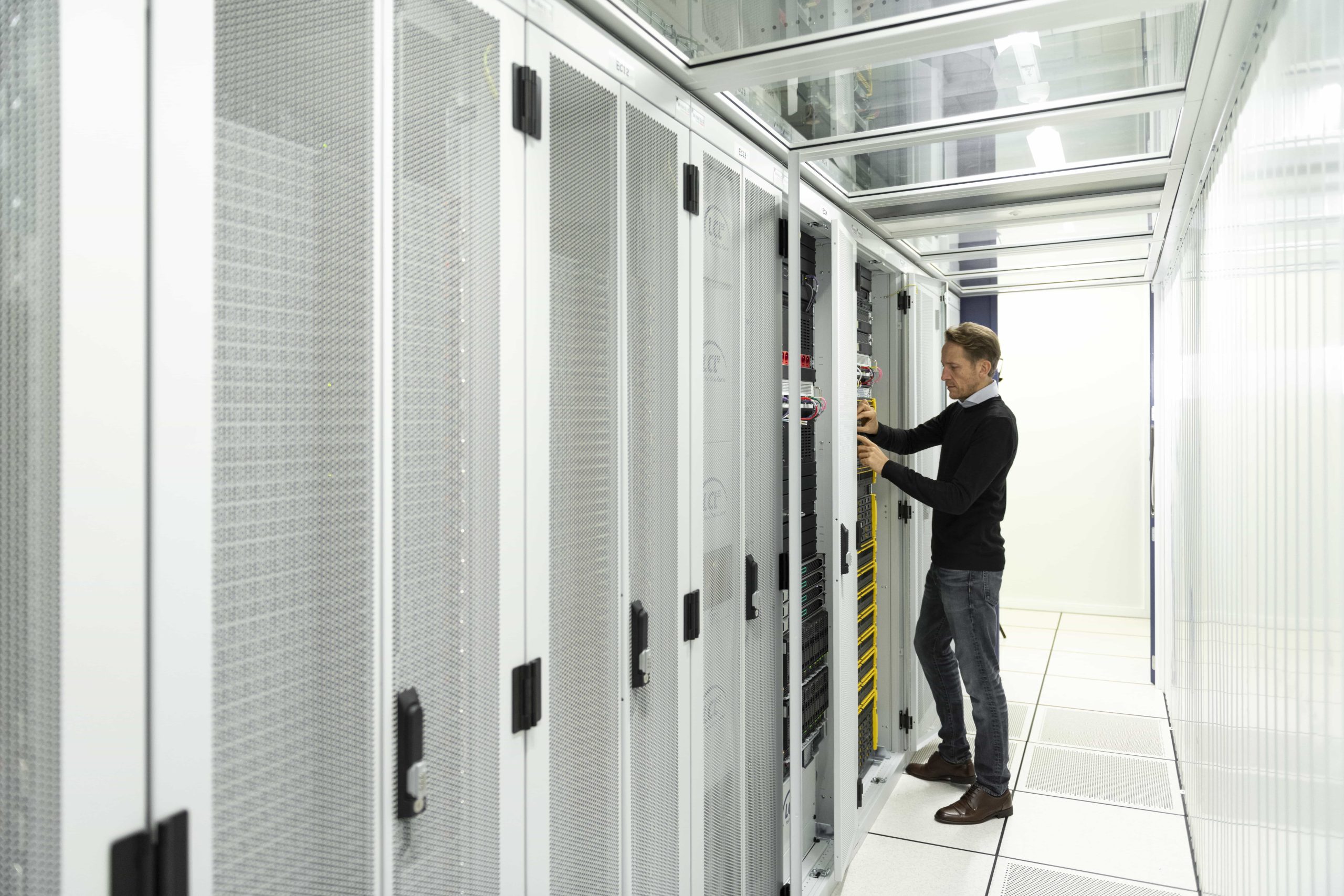Data centers take up a lot of energy, which drives up costs enormously in the current inflation-rigged environment and rising energy rates.
A solid data center with all the necessary facilities for cooling and backup requires a lot of electricity. However, with our tips it is possible to save on energy - good for both your budget and your carbon footprint.
Choose the right hardware
Buying hardware 'on the fly' is partly unavoidable if you work with your own servers, storage and other infrastructure. But it can significantly increase your energy bill, so avoid oversized capacity that also requires extra strain on electricity and cooling. Limit that space for growth and don't look beyond your expectations for the next three years. In addition, it is also important to choose energy-efficient hardware. A review of your existing systems can also be useful. Get advice on this from your IT partner.
Streamline your servers
Do you still have applications running on servers that no longer play an active role in your business network? Perhaps you don't dare to simply turn off these "zombie servers" because that could have an impact on other applications. Virtualization is the answer: transfer the software to a virtual server environment in the cloud. Switch off servers that are no longer needed; this will result in considerable energy savings.
Use energy-efficient possibilities of your server
Recent servers offer all kinds of possibilities for more efficient energy management. Yet these often remain unused because companies fear that they will not only reduce energy consumption but also performance. A misunderstanding, because the technology ensures, for example, that energy is saved when the server does not need to run at full power.
Limit cooling
Servers and other systems can take a beating. They can withstand high humidity and they continue to function smoothly in temperatures up to 30°C. The air conditioning in the data center can therefore be set to slightly lower temperatures, which will ensure that energy consumption is reduced.

Don't store everything (for the same period of time)
The more data you keep, the more storage capacity you need, which naturally also requires more energy to keep everything up and running. The amount of data continues to grow endlessly and exponentially so just saving everything is not sensible. Not all files are equally important. Therefore, be sure to do a big cleanup of your existing data and at the same time start an automated approach for more efficient data management. Based on the file type, for example, you can set how and for how long the data should be retained.
Move to the cloud
Your own data center requires a great deal of effort: your own hardware, management, maintenance, space and energy. That is why it is usually more interesting to host your applications and data in an external data center and to work via the cloud. A cloud partner such as Cheops can absolve you of all concern so that you can be sure of a flexibly available capacity, efficient and proactive management, optimum security and maximum availability that is guaranteed.
Want to know more about managed cloud?
Contact one of our IT experts.